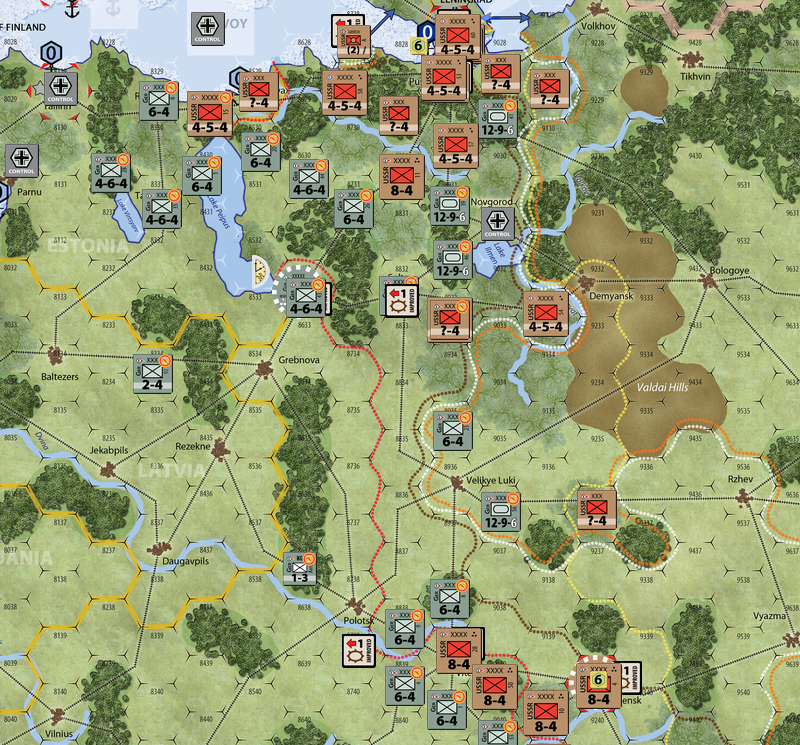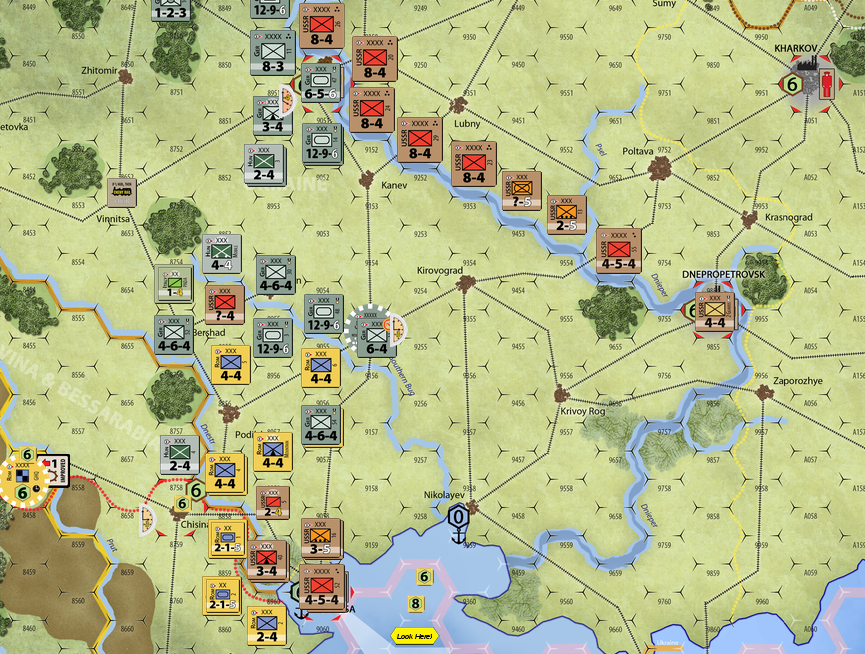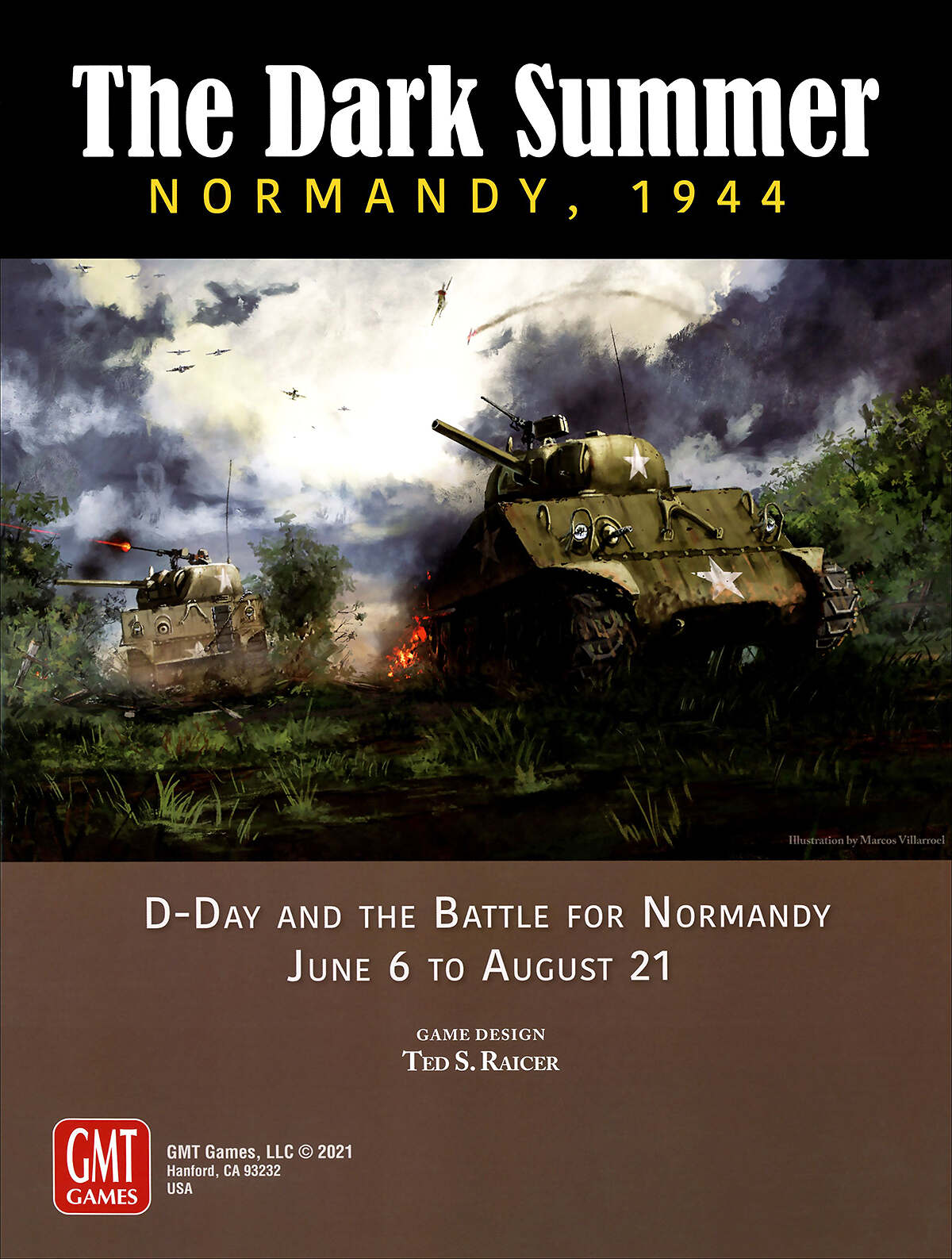Russian difficulties
Russian Difficulties
We had left the Russian reeling. The Stavka decides to leave Odessa to its fate. The city will stand on its own, supplied by the sea. The majority of the available reinforcements are assigned to Leningrad, to the detriment of the other fronts.
What I find worrying is the lack of units facing Moscow. There is no link between Novgorod and Smolensk. We find the same type of hole in the south of Ukraine.
An attack is being launched on the panzer division closest to Leningrad. Surrounded on all sides, it succeeds in disengaging without losses, thanks to the ability of the armoured tanks to ignore the first retreat hex in enemy Zoc.
As August begins, German railway movements intensify between the Northern and Southern fronts. Several infantry corps are withdrawn from the GA Leningrad to be assigned to the GA Dnepropetrosvk One of them receives brand new trucks: the German army is motorised. This costs a few points of equipment and fuel but allows them to keep pace with the panzers. The axist line stretches along the Dnieper while three Romanian corps embolden themselves towards Sevastopol. An attack to the north of Kiev enabled the river to be crossed but the Soviet line held. Around Odessa, the Romanians tightened their grip.
In its turn, the Russians once again reinforced themselves in the north. This debauchery of means around the cradle of the revolution weakened the other fronts which had nothing to hold out against the Wermacht.
Certainly a counter-attack pushes back once again a panzercorp, but the damage is done. The axis has achieved its objectives: to provoke an over-reaction of the Soviets in one place to take advantage of a superiority over the other points on the map. The Russian plays two cards chosen at the beginning of the turn. The first one allows him to build six fortified positions for free as well as a garrison. The second allows him to spend more reinforcement points than usual. As a rule, Soviet cards are more powerful than German ones. However, for them to be most effective, you need to have someone on the ground.
As a German player, I can see that holding the whole front will soon become difficult. For at least two turns now, the Soviet, obsessed by his difficulties in the Ukraine and the Baltic, has been ignoring his centre where he is stronger than me. A diversionary attack at this point would have forced me to repatriate troops there that I would have missed elsewhere. Now it is too late.





Commentaires
Enregistrer un commentaire